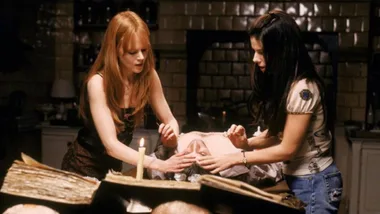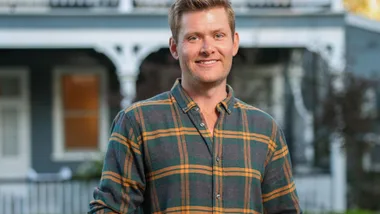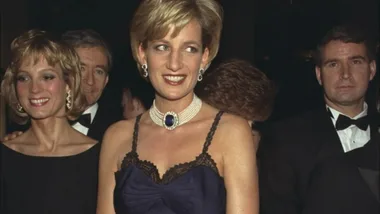It’s a weeknight in Tokyo and high-octane J-pop bounces off the walls of a crowded club. On the stage, 18 teenage girls wearing pink pyjamas and fixed smiles rattle through a series of synchronised dance steps. Their songs – belted out like a well-drilled, if risqué, school choir – are as fizzy and nutritious as a soft drink. “S-U-G-A-R,” they chorus, pumping the air with their fists. “Jump into your racing car, say sugar rush, sugar rush (hey)!” The audience, a motley crew of students and office workers, sing along, cheer and wave glowsticks as if acting according to some invisible cue. Ninety-five per cent are male.
The music stops and each girl performs a monologue. “I’m 14 and I haven’t eaten a watermelon yet,” says one. “So I’m going to try one this year.” Another starlet saunters to the front of the stage. “I bought a bikini last year and I haven’t had a chance to wear it,” she coos in a high girlie voice. “I’ll have a nice body by the summer so I’ll try it then.” A collective “ooooh” from the crowd and then it’s back to the jackhammer soundtrack and a series of eye-popping costume changes: short leather boots, suspenders and school uniforms. Welcome to the world of AKB48.
You may not have heard of them, but AKB48 is one of the world’s most successful pop acts, with more than a dozen chart-toppers and annual CD and DVD sales of more than $230 million (which is triple what Lady Gaga brought in last year). Add in income from merchandising, endorsements, concert ticket sales and TV performance fees and you have a genuine supergroup, as ubiquitous in Japan as instant noodles. Among the Guinness World Records they hold is one for most number of appearances in different TV commercials in a single day (90) and the world’s largest pop group (since 2010).
AKB48 also have their own manga series, monthly magazine and a string of bestselling video games. The government has even issued them their own postage stamp and enlisted them to sell state bonds.
But all that success is steeped in controversy. There are the photoshoots that feature “team” members (as members are referred to) as young as 13 posing in their underwear, and the lingering questions about whether the girls themselves ever see a fair share of their hard-earned fortune. Then there’s the svengali behind the band’s success, record producer Yasushi Akimoto, who allegedly insists members stringently adhere to a “no dating” rule so as to never shatter their (male) fans’ illusions about their availability.
The AKB48 monster (the “48” stands for the number of regular members) was conceived nearly a decade ago in Akihabara (hence AKB), Tokyo’s capital of geeky cool, when Akimoto hit upon the idea of an all-girl group that would perform daily in their own exclusive theatre, drawing in customers off the street. Thousands of girls were auditioned, American Idol style, and eventually a team of 24 was formed. Older members would tutor younger “trainees” and eventually “graduate”, or leave the group.
Critics sniffed at the girls’ tuneless warbling and wobbly dancing, but it was precisely their amateurishness – that just-out-of-reach girl-next-door quality– that endeared AKB48 to their fans.
Nobody, however, questioned Akimoto’s marketing savvy. The girls were coached to sing suggestive bubblegum pop that quickly spawned a lucrative recording career. Fans were encouraged to become paying members of the AKB48 “club” and form (strictly platonic) relationships with their favourite performer. They could vote for who rose and fell in the group’s hierarchy, binding them to their favourite performers.
“This idea that you are intimately involved in their development, that you’re helping and nurturing them, has really inspired passionate fandom,” says Patrick Galbraith, a Japanese pop culture expert and author of The Otaku Encyclopedia. “As they rise up, you’re associated with that. It’s really clever.”
Akimoto’s formula helped the group steamroll its way out of the otaku (or “fanboy”) pop underground and into the mainstream. Today, ABK48 is an institution, commanding the nation’s attention for weeks during the lead-up to an annual “election” at Tokyo’s Nippon Budokan concert hall to vote for the most popular members. Last year’s poll saw 2.6 million Japanese cast their vote. (The public can only vote by buying the group’s latest single for $12.50, with some reportedly buying multiple copies.) On the night of the 2013 election, one in three TVs in the region around Tokyo was tuned in to the live broadcast, according to The New York Times.
“Retirements” from the group are national news. Singer Yuko Oshima made front-page news when she announced her departure last New Year’s Eve during state broadcaster NHK’s annual variety music show. At 25, she was already considered ancient in AKB48’s teen fraternity.
But despite the mega group’s incredible popularity, their success raises some troubling questions. For one thing, where does all the money go? Not, it seems, to the girls. Akimoto’s management company has declined to discuss the group’s finances, but Japan’s tabloids say the performers are paid as little as $2000–$3000 a month, depending on their popularity. Top stars like Oshima reportedly earn at least three times that – still a tiny fraction of AKB48’s huge income – though their earnings can be boosted by leveraging their stardom into solo efforts. Akimoto reportedly gets 30 per cent of all royalties and fees.
Then there is the group’s flirtation with underage sexual imagery and themes. In one of their more notorious videos, for the song “Heavy Rotation”, the girls don lingerie and mime a sort of lesbian slumber party: kissing, feeding each other cherries and sharing a bubble bath. Every year the AKB48 team poses for thousands of magazine pictures wearing little more than pigtails and pouty smiles.
“Toss aside my uniform, I want to play more naughtily, I’ll do whatever you make me do, I want to know the fun of an adult … “
AKB48 lyrics
Some songs appear to be straightforward invitations to underage sex. In “My School Uniform Is Getting In My Way”, the girls collectively plead to “love more freely”. They sing, “Toss aside my uniform, I want to play more naughtily, I’ll do whatever you make me do, I want to know the fun of an adult … Don’t look at me with those eyes, as though I’m only a high school girl … Even if someone is watching, it’s no concern of ours.”
It’s a long way from “Be My Baby”.
Consider, as well, the questionable marketing tactics employed by the group’s management. For $15 a month, for instance, AKB48’s official website offers a service that enables men to create a “digital baby” with their favourite group member. On its introduction, the website showed Yuko Oshima smiling and asking, “Would you make a baby with me?” – while breastfeeding.
Of course, pop music has a long tradition of challenging boundaries and expressing teen sexual fantasies. But AKB48’s icky schtick comes from the minds of middle-aged male producers, mainly Akimoto, who writes many of the lyrics. “It’s very patriarchal,” says Galbraith. “[Akimoto] communicates through the girls to the fans, so he gets to control both.” And although Japanese culture has always had a tendency to portray women as submissive or childlike – manga comics and anime films are filled with doe-eyed, girlish characters and anything kawaii (or cute) is revered – there’s a dark side to these widely accepted cultural norms, too. Japan is the only country in the Organisation for Economic Co-operation and Development (OECD), for example, that doesn’t have robust laws that ban the possession of child porn.
In a rare interview with CNN in 2012, Akimoto defended charges of sexual exploitation, saying he was depicting the realities of teenage life in his lyrics and images. “I’m not forcing them, I’m picturing their private lives, partly based on my imagination or newspaper articles or TV news reports. I watch what their generation is doing.” Akimoto was frank about the limits of his protégés. “It’s about people who want to apply for American Idol but are not very good at singing. They want to dance on Broadway, but they’re not really that good at it.” AKB48 was different to American Idol and other Western talent shows, he said: instead of showing stars fully formed, his group allows fans to watch their favourite performers grow and develop.
AKB48’s Lolita complex sits oddly with the band’s strict code of behaviour. Dating and sexual relations are banned, as is anything that might break the spell that they are unattainable to their male fans. Several members have been demoted when the media revealed they were secretly dating. In the most memorable incident, in January last year Minami Minegishi, a silken-haired jewel in the group’s pop crown, shaved her head and made a tearstained apology on video after a tabloid magazine snapped her emerging from an overnight tryst at her boyfriend’s apartment. She was eventually reinstated.
But what happens to the girls once they have reached their sell-by date? Some, like Oshima, may be lucky enough to carve out new careers in modelling and acting. A few have started clothing chains and at least one, Nozomi Kawasaki, has gotten married. Three others have accepted the lure of Japan’s porn industry. Rina Nakanishi appeared in more than a dozen adult videos after she retired from AKB48 in 2010. Eri Takamatsu is a veteran of six hardcore movies. Last October, Risa Naruse made her adult video debut. “I want to find a new me,” she shyly says in the movie National Idol, before peeling off her school uniform and having sex with men on camera.
Oddly, few of the hundreds of ex-members have broken ranks or told tales about what happens inside the group. But occasionally the public is shown a glimpse of what goes on behind the scenes. Some of the most valuable insights come from 2012’s Documentary Of AKB48: Show Must Go On. Culled from more than 1000 hours of footage, the movie shows the young performers, under Akimoto’s tutelage, pushing themselves to the limit, with some crying, vomiting or fainting during rehearsals. The movie hinges around the looming retirement of Atsuko Maeda. More than 200,000 fans applied for tickets to her final concert.
Akimoto is now trying to export his empire abroad. AKB48 has sister groups in China, Taiwan and Indonesia. He believes the “idol you can meet” formula might even work in the US or Europe. But not everyone is convinced. Steve McClure, executive editor of online music industry newsletter McClureMusic.com, says the group cannot escape its Japanese moorings. “The AKB48 phenomenon says a lot about Japanese society.
“The group presents a disturbingly infantilised vision of female sexuality “
Steve McClure, McClureMusic.com, Executive editor
The group presents a disturbingly infantilised vision of female sexuality. Their music, with its emphasis on group vocals and lack of harmony, ironically reflects the premium placed on group harmony and non-threatening mediocrity by Japanese society and the mass media.”
Meanwhile, AKB48 continues to go from strength to strength. “Sayonara Crawl”, their 2013 single, sold nearly 1.5 million copies on its first day, setting a new record for most sales by a girl band. Tickets for those daily concerts at the Akihabara theatre, where rotating teams of AKB48 members perform every day, are oversubscribed by 100 to one. Hundreds of disappointed fans watch on a video screen outside the theatre. Some retire to the AKB48 cafe and shop, five minutes away, where look-alike waitresses in short skirts serve fluffy omelettes with curried rice decorated with ketchup hearts. The walls are autographed by the girls and drinks are served on coasters featuring their pictures. Fans can buy AKB48 custard cakes, cookies and cushions embossed with the names of their favourite starlet.
Yuta Kato, a 26-year-old office worker, travelled from the other side of the country to see the group. “The appeal for me is that they are all individuals and you see each one grow,” he says. “The more you follow them, the more interested you become in their lives.” Like most male fans he denies any overt sexual attraction. “They’re more like little sisters than potential girlfriends,” he insists.
Back in the theatre, the girls are nearing the end of their routine. They’re now wearing candy-coloured negligees cut off at the thigh to reveal hotpants, and singing in Japanese and English. One by one, the girls skip to the front of the stage and beam down at the audience in the front row.
An office worker, holding his jacket on his arm, necktie undone, stares up, eyes wide, a serene smile on his face. “Because I LOVE you,” the girls sing in unison. Then, after a final round of digital squeaks and thumps from the speakers, they’re gone. As the man exits the theatre, the light seems to have gone from his face.










